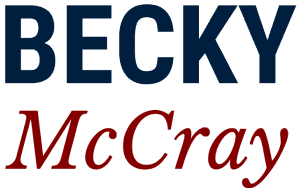Still doing things the hard way? Here’s a peek at the new way
The old way of getting things done in small towns was committees, meetings and plans in binders. That’s the hard way. But you and I know that doesn’t cut it anymore.
We know what the new way looks like because we use it everyday. We already use tools like text messages, email and social networks to organize people for action without formalities. We use them with friends, kids’ activities, social stuff, and even our family holiday get-togethers without resorting to committees and binders.
When we get to work, we use these tools, yes, but we’re still stuck using them within the old formal structures that block other people from participating and shut down creativity. Why are you doing yet another long-term plan with only the same five people giving input? What difference does it make to still have committees? Why does your organization still have a president? Do you even need a formal board? Why do we have to keep doing it the hard way?
It’s not enough to adopt new tools, to use text messaging and email to keep doing things the hard way. We have to throw out all the old ways of thinking and adopt new behaviors. We have to imagine what it would look like to truly convert to the new way.
We can’t adapt to the disruptive future by using the formal organizational structures of the past.
Here’s a real-world example. I know you have trouble finding enough volunteers for your organization. The old way to get volunteers is to ask them to join your formal committees:
- “The Chamber of Commerce is planning for our 2017 programs. Please see attached committee list and let us know which areas you are willing to serve on. Thank you for your support.” (Yes, that’s an actual email I received.)
This particular chamber has adopted new tools like email and even Messenger, but it’s stuck in the old way of thinking, the old behaviors of committees and the “you have to fit into our plans” approach of old formal organizations. Definitely the hard way.
What if we turned that approach around and made it more Idea Friendly?
- “Are you working on a project, business, event, or just an idea or experiment that could help make our town better? We are here to help you. We want to help spread the word, connect you with more people and find you resources to make it happen. Please, bring your project or idea to our Facebook Group, where others can join you. Thank you for all you do for our town!”
Instead of trying to force people into our rigid old committee structure, we’re asking to help people do what they are already doing. Here’s what makes that Idea Friendly:
- We’re making ourselves the focus for the kind of discussion we want to have about our town. We’re actively encouraging large numbers of people to try actions that could make a difference. That’s part of Gathering Your Crowd.
- We’re looking to connect people with the other people and resources they need. Instead of building grand plans and expecting others to fit into them, we’re mostly facilitating a stronger network. That’s Building Connections.
- We’re not worried about making them fit into our plans, or whether they are doing something “important enough for us to mess with.” We’re just asking them to let us know what they’re up to. That’s Taking Small Steps.
This is hard work, re-imagining everything you do. I’m not asking you to do it because it fits this neat Idea Friendly framework I came up with; I’m asking you to do it because it fits the way we all do things now. Idea Friendly exists to help you make the transition from old way to new way. I created this to help you adopt new ways of thinking and new behaviors that you need for the future. There’s a lot of re-imagining and throwing out of old ways to be done.
- Scroll back up and re-read those two messages in bold again.
- Go back and re-read these Idea Friendly examples from September.
- Think for just a minute about behaviors you want to change in your organization, the outdated formalities you want to eliminate.
This is the kind of re-thinking you’re going to be doing if you want your organization to get ready for the future. All those future technologies we’ve talked about affecting your town (chat bots, tech for seniors, and changes to jobs) are just the start. There are more disruptions to come. It’s time to start re-imagining your future.
Deb Brown and I are going to be talking about that future in our Chat on Sunday, Nov. 27.
